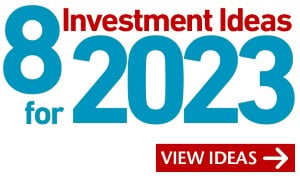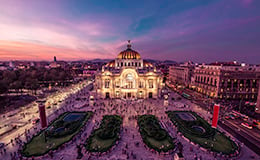Pragmatism in Post-Election Brazil
Read Portfolio Manager Alex Zarechnak’s outlook for Brazil after a recent research trip.
SubscribeIn November, Luiz Inacio Lula da Silva – known as Lula – completed a remarkable political comeback when he was elected President of Brazil. Lula served two generally successful terms as President from 2003-2010. But if Lula was a stock, that stock began to fall, and it fell precipitously. His hand-picked successor, Dilma Rousseff, was impeached in 2016 amid widescale public protests over corruption and a weak economy. Lula himself was engulfed in the Car Wash corruption scandal, and in 2018 he was convicted and sentenced to 12 years in prison. Politically, he seemed extinct, and his Workers Party (PT) looked rudderless. Center-right administrations ruled Brazil from 2016 to 2022.
But Lula was released from jail in 2019 following a Supreme Court ruling, and in the following months his conviction was overturned, and his political rights restored. At the age of 75, he quickly resumed his leadership position of the PT, and in November defeated incumbent Jair Bolsonaro in a narrow victory.
John Paul Lech and I were in Brazil two weeks after the election victory, and most company managements that we saw were cautiously optimistic about the return of Lula. They pointed to his historic pragmatic style of governing, and the prospect of an improvement in Brazil’s reputation abroad, partly on improvements in environmental policies. Soon, though, the mood turned more cautious than optimistic, as Lula signaled a more aggressive strategy of state intervention and expansion than market participants had assumed. Brazil stocks and the real1 sold off. Hopes that the Central Bank could soon start to cut rates were dashed. People wondered whether the people who had supported Lula during his jailing were among the most extreme politically in Brazil and would now be running the country. On January 8, riots by Bolsonaro supporters – including some members of the military – who believed the election was illegitimate, shocked the country.
But today, the country is calmer, and a sense of pragmatism may be returning to Brasilia. New Finance Minister Fernando Haddad – described in one of our meetings in Brazil as “the worst-case scenario” – has communicated a commitment to fiscal responsibility. Lula has met with military leaders to try to ease tensions.
It is hard to predict exactly what effect the new Lula administration will have on Brazil. It is likely that both government spending and taxes will rise. The administration may reverse some of the important reforms enacted under the previous center-right administrations, including those which protected state-owned enterprises (SEOs) from government meddling. All in all, it is likely that markets will at times need to “constrain” Lula from pushing for too much government interference and expansion; this means Lula may need to be occasionally reminded that his personal policy preferences could lead to a weaker real, higher inflation and lower growth. Central Bank and real market interest rates are likely to be higher than they would have been in a more market-friendly government.
However, there are also positive economic factors for Brazil today. Brazil’s Central Bank was proactive when inflation began to rise in 2020 – and it raised policy rates by more than 11%, to 13.75%. It’s worked: Brazil inflation, which peaked at around 12% in mid-’22, has fallen below 6%. This aggressive monetary policy means it’s possible Brazil can start a rate-cut cycle before most countries around the world, including the United States. Meanwhile, generally high commodity prices as we start the year continue to shore up Brazil’s balance of payments and the real.
All in all, Lula’s election as president is unlikely to scuttle the fundamentals of the Brazil companies we own in our portfolios. These companies share some important characteristics: strong balance sheet; good competitive positions; and track records of navigating economic and political volatility. We believe all of these factors should help our portfolio companies emerge from the pandemic, and from whatever political challenges come along, as strong as ever.
Quality companies with growth characteristics tend to exhibit the same attributes irrespective of where they are located or what industry they operate in. It’s these attributes that lead us to identify long-term opportunities even in difficult times.
Alex Zarechnak
Portfolio Manager
Matthews Asia




